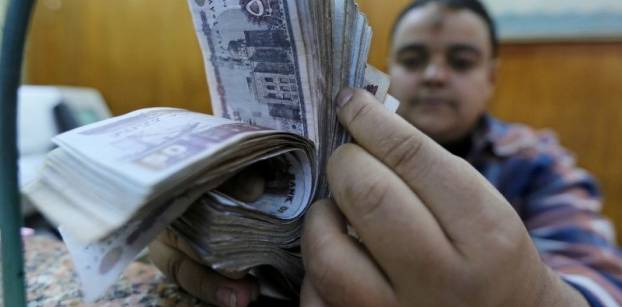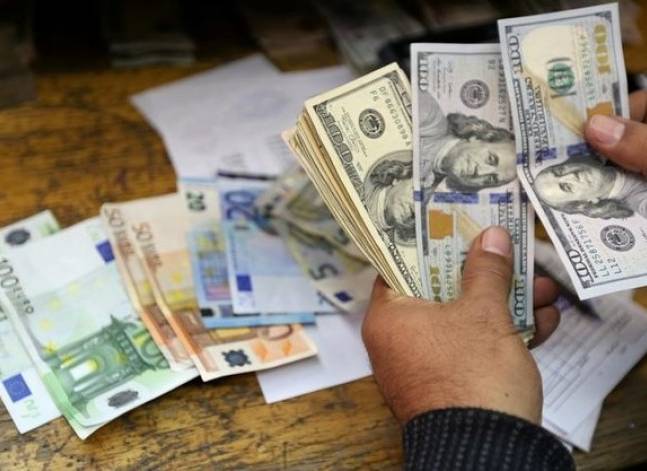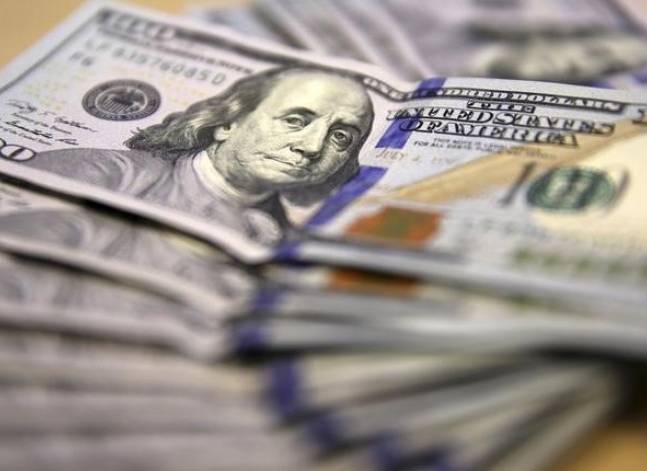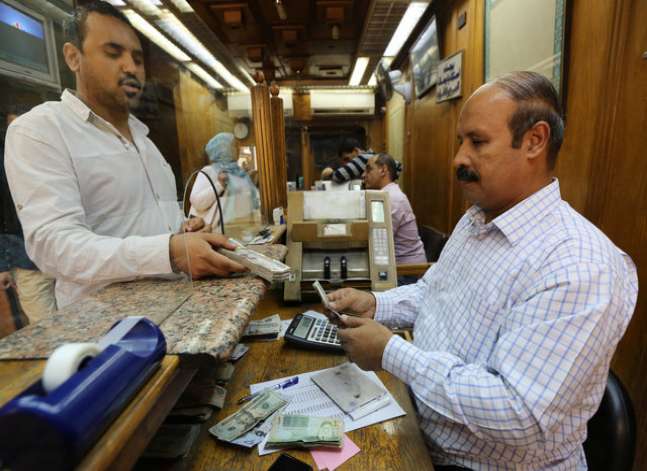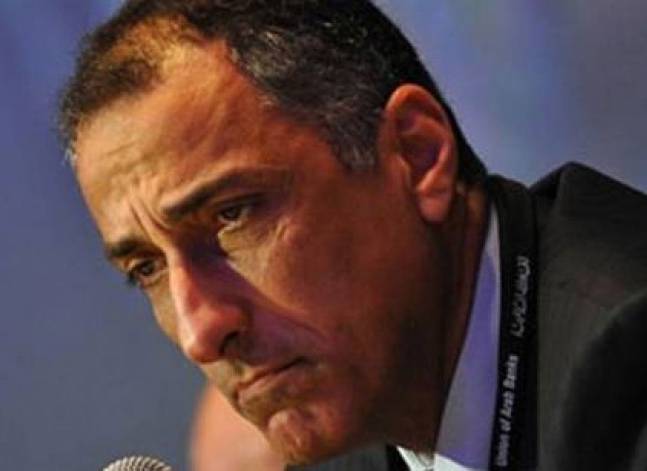Latest NEWS
- Aswat Masriya, the last word
- Roundup of Egypt's press headlines on March 15, 2017
- Roundup of Egypt's press headlines on March 14, 2017
- Former Egyptian President Hosni Mubarak to be released: lawyer
- Roundup of Egypt's press headlines on March 13, 2017
- Egypt's capital set to grow by half a million in 2017
- Egypt's wheat reserves to double with start of harvest -supply min
- Roundup of Egypt's press headlines on March 12, 2017
Egyptian pound strengthens as foreign investors return
An employee counts Egyptian pounds in a foreign exchange office in central Cairo, Egypt December 27, 2016. REUTERS/Mohamed Abd El Ghany
CAIRO, Feb 9 (Reuters) - The Egyptian pound strengthened at banks as foreign investor confidence picked up and backlogs of U.S. dollar orders to finance imports eased, bankers and economists told Reuters on Thursday.
The U.S. dollar was being bought for around 17.75 pounds at most banks, down from around 18.75 last week. Banks were paying clients around 17.8 per dollar.
"The pound is strengthening because the demand for dollars is slowing, especially from importers of non-essentials," said Allen Sandeep, head of research at Naeem Brokerage in Cairo.
"We had a lot of backlog towards the end of last year but that backlog is now easing."
Bankers said there had also been a massive rally on Egyptian treasuries this week which transferred into the secondary market and was reflected in the pound to dollar exchange rate.
"As of Sunday foreign appetite for treasury bills has been huge. They are buying and in large numbers. They are buying three-, six-, nine-month bills, one-year bills. They are buying everything," one banker told Reuters.
Average yields on six-month and one-year treasury bills dropped sharply by around 2 percentage points, central bank data showed on Thursday, as more foreigners bought upEgyptian debt.
"The yields falling indicate that demand from foreigners has picked up. Foreigners have already bought $1.15 billion worth of treasury bills and the number should be growing," said Sandeep.
The central bank abandoned its currency peg of 8.8 pounds to the U.S. dollar on Nov. 3, hoping to unlock currency inflows and bring back foreign investors who were driven away after the 2011 uprising that ousted Hosni Mubarak.
Under the currency peg, dollar supplies were rationed by the central bank, forcing businesses to go to the black market for foreign currency. Bankers said dollars were finally being absorbed back into the banking system.
'BY THE BOOK'
The float, which helped Egypt clinch a $12 billion three-year loan from the International Monetary Fund, is part of a larger government economic reform programme that included fuel price hikes and subsidy cuts.
Economists say these steps have gone a long way in restoring foreign investor confidence shattered by years of political turmoil.
"They floated the pound, are cutting subsidies, and basically doing all the right things by the book and in accordance to IMF conditions. They are moving in the right direction," said Sandeep.
Remittances from expatriate Egyptians also helped pump more dollars into the system, bankers said, having risen 11.8 percent in the fourth quarter of 2016, the central bank said on Monday, with most of the increase coming after the float.
Egyptians working abroad send back billions of dollars a year in remittances, an important source of hard currency for a country that has seen tourism, foreign investment and exports dwindle in the political turmoil that followed the 2011 revolt.
Net foreign reserves rose to $26.363 billion at the end of January from $24.265 billion at the end of December, the central bank said on Sunday. Reserves were at roughly $36 billion before the uprising.
The economy still had a long way to go, however, economists said. Business activity in Egypt shrank for the 16th consecutive month in January as record-high inflation pushed up prices charged by businesses and sent employment to a four-month low, a survey showed on Sunday. (Editing by Toby Chopra)

